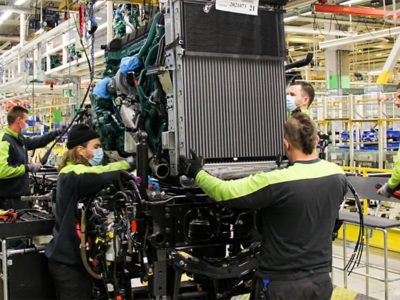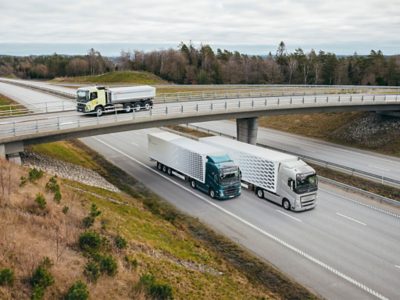In the coming years, the Vehicle Energy Consumption Calculation Tool (VECTO) will play an important role in lowering truck CO2 emissions in the EU. Its impact can already be seen through the development of more fuel-efficient trucks, which benefits truck owners across the world.
VECTO was introduced and put into force in 2019, as part of EU’s CO2 legislation (EU regulation 2019/1242). It is essentially a form of software that simulates CO2 emissions and fuel consumption for any given truck combination, based on data input from the manufacturer. This can include vehicle specifications, loads, fuels and routes. As of 1st January 2019, all new trucks sold in the EU with a gross vehicle weight of over 3500 kg, must come with a certified CO2 and fuel consumption declaration, created by VECTO.
The overall ambition of the EU regulation is to reduce CO2 emissions from heavy-duty vehicles by 15% by 2025 (compared to 2019 levels) and 30% by 2030 (although the 2030 target is still under discussion and could be higher still). The role of VECTO is to offer a standardised tool for tracking each truck manufacturer’s progress in cutting CO2 emissions and to ensure compliance.
How has VECTO impacted truck owners?
Since VECTO is primarily aimed at truck manufacturers, for the most part it has not directly impacted truck owners and transport companies. However, it has had a significant indirect impact by prompting the development of more fuel-efficient vehicles and services. For example, an independent test recently showed that some truck models now consume 18% less fuel than they did in the same test just four years ago.
“In just the last few years, we have made huge progress in making our trucks more fuel efficient, and it is partly because we have a tool like VECTO,” says Ylva Dalerstedt, Segment Manager Long Haul, Volvo Trucks. “The result is not only bringing the EU closer to meeting its commitments in the Paris Agreement but is also helping transport companies to meet their own CO2 reduction targets as well as save on fuel costs.”

VECTO is not only bringing the EU closer to meeting its climate commitments but is also helping transport companies to meet their CO2 targets as well as save on fuel costs
It should be noted that VECTO provides a simulated fuel consumption value based on certain payloads and specific routes, however actual fuel consumption can still be further improved through things like driver training and smart software solutions – factors which are not yet fully integrated into the VECTO tool.
In addition, truck owners and transport companies can use the declarations to compare different truck specifications in terms of fuel consumption and CO2 emissions. “There are some companies who see the value in declarations, because it offers transparency and enables them to make fact-based comparisons,” says Ylva. “So, if you’re really interested in getting either your CO2 emissions or fuel consumption down, VECTO and its declarations can be a good tool for making more informed decisions.”
What happens next?
In 2021, the EU released its first report based on VECTO results from its first year covering trucks manufactured in 2019. This established the status of Europe’s heavy-duty truck fleet for that year and set the baseline for future reduction targets. Now it is the responsibility of manufacturers to reduce their emissions to meet the EU’s target of 15% reduction by 2025.
“With VECTO, all truck manufacturers have one common tool and methodology for establishing their CO2 footprint and tracking progress towards meeting climate targets,” says Ylva. “For our engineers and product development teams, getting our vehicles’ VECTO values down is a huge motivator and a tangible target to work towards.”

With VECTO, all truck manufacturers have one common tool and methodology for establishing their CO2 footprint and tracking progress towards meeting climate targets
With the EU’s target of a 15% reduction in CO2 by 2025 fast approaching, the importance of VECTO for heavy-duty truck manufacturers will only increase, and in the coming years truck owners can look forward to even more fuel-efficient trucks on the market.
For more information about VECTO, visit the European Commission's website, where you will find:
- Documentation on the full regulation
- Frequently asked questions
- In depth details on how the simulation works